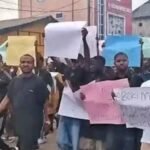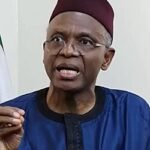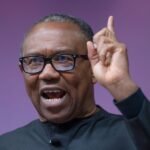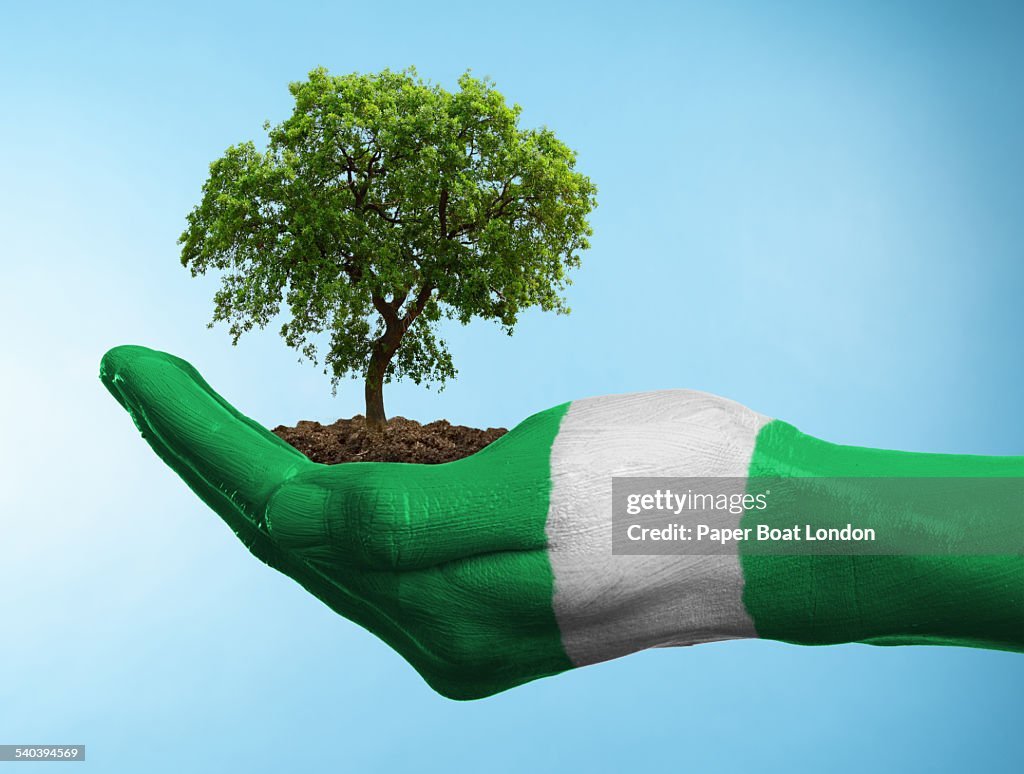By Biola Lawal
There has been a growing concern over the dwindling roles of State Governors in the economic affairs of the country since the nation’s return to democracy in 1999. Many of them are on record to have shown limited knowledge of the concept of federalism.
Chief Niyi Akinsiju, Cifian
Chairman
Independent Media and Policy Initiative
It appears that this confounding gubernatorial disposition to federalism is consequent upon an outright misunderstanding of the bolts and nuts undergirding the power relationships between the States and the Federal Government in a federal system or, perhaps, it may be that the Nigerian State Governors have, overtime, decidedly abandoned their roles as enshrined in the Constitution of the Federal Republic of Nigeria in preference for waiting in line for Federal Government’s largesse.
Consequently, rather than have scenarios of federating states that are economically self-regenerating and sustainable with implications on the standard of life of citizens living within their respective borders, the Nigerian State is saddled with a collection of dependent states whose only claim to political standing are their constitutional mentions.
From the analyst standpoint, a large number of the states, overtime, have not had the good fortune of being entrusted to capable, resourceful, policy minded individuals that could have positively impacted the whole gamut of existence of people in the states. This would have saved the nation from the untoward whining of Governors elected on the platform of the People’s Democratic Party (PDP) that recently made a spectacle of themselves in the public space.
After a meeting in Abuja, the PDP Governors addressed the media on the economic challenges confronting the nation at this time. Typically espousing an abbreviated understanding of the nuances of federalism with intent at manipulating the larger populace’s perception of the current administration of President Bola Ahmed Tinubu, the Governors declared, rather, in a tongue-in -cheek manner:
“But at the onset of this administration, we supported the removal of subsidy, we believed that there were safeguards, we believed that if we took collective decisions, we should go by it. But certainly, we have seen that it is a free fall for the naira. The cost of living is going high, we are almost on the road to Venezuela.”
The above extraction from the statement of PDP Governors merely captures a pedestrian understanding of the place of state governors in a federal structure.
Petroleum subsidy was a national policy not a federal government policy, that was why payments were deducted from the federation account, not the consolidated account.
Federation account receives all accruals on behalf of all tiers of the federating units. It is from the federation account that Federation Account and Allocation Committee (FAAC) shares money to the three tiers of government on the basis of a legislated revenue formula; the federal government takes 52.68%, of distributable revenue while the States as a collective take 26.72% and the Local Government areas shares 20.60% .
The PDP Governors had also gone on to describe the withdrawal of subsidy and harmonisation of the foreign exchange windows as obnoxious policies. This, in our consideration, smacks of imprudence by Governors that refused to acknowledge the exponential increase in revenue they had been sharing from FAAC every month since the application of the twin policies of subsidy removal and exchange rates unification.
To put this in perspective, the National Bureau of Statistics (NBS) reports that in 2023, State Governors got the most cash in FAAC allocations in at least seven years. This was after the petrol subsidy was removed and the currency reform availed a 40 percent increase to the country’s revenue.
According to the NBS, FAAC shared a total of N16.04 trillion to the three tiers of government in 2023, a 37.3 percent increase from N11.7 trillion in 2022. From this, the States and their Local Governments received a total FAAC allocation of N6.57 trillion, twice the N3.16 trillion they received in 2022. The NBS particularly notes that the amount shared by the federation surged in June 2023 following President Tinubu’s removal of the petrol subsidy and liberalisation of the foreign exchange market.
However, the increased revenue shared has not reflected in the lives of Nigerians residing in the states. While we acknowledge the feverish efforts being made by the Federal Government to manage inflation through providing more food and enhancing supply of Dollar to the foreign exchange market, except for Lagos State and a few other states, we have not seen a replication of the Federal Government’s commitment to assuaging the challenged economic circumstances of citizens at the sub-national level.
We profile some of these States here; Delta State, a PDP-controlled State received the highest FAAC allocation of N214.74 billion between June and December 2023.
Rivers State, another PDP-controlled State followed with N179.81 billion, Akwa Ibom State, yet another state with a PDP governor got the third highest sum of N145.57 billion, and Bayelsa, a PDP state with only eight council areas, received the fourth highest revenue allocation at N128.5 billion.
Despite this hugely increased revenue, a PCL State Performance Index (PSPI) released by Phillip Consulting Ltd in December 2023 ascribes a poverty rate of 13.10 percent to Delta State as well as an unemployment rate of 31.10 percent and an inflation rate of 24 percent.
According to the PSPI, Delta State faces significant challenges in the effective management of public institutions, provision of public transportation, and access to potable water.
While poverty rate is 7.3 percent in Rivers State, its unemployment rate is stated at 41.60 percent and inflation rate at 31 percent. These figures are way above the national average of 33 percent unemployment rate and the 28.9 percent inflation rate respectively.
Akwa Ibom, another high earning PDP State has a poverty rate of 22.9 percent, unemployment rate of 51 percent, and inflation rate of 26 percent with Bayelsa State recording poverty rate at 24.3 percent, unemployment rate of 36.7 percent, and inflation rate of 28 percent.
In summary, other data have shown that most of the states in the federation are ill managed, reflective of the fact that substantial FAAC allocations received by these states have not significantly improved the condition of their residents.
We further question the basis of the Governors’ insinuation that Nigeria is treading the path to the economic situation that had become the lot of Venezuela when, indeed, the policies being deployed by the Tinubu administration are the opposite of the policy undoing of Venezuela.
The South American country, like ours, used to binge on crude oil revenues by subsidising virtually all basic needs but when oil prices crashed, its economic vertebra couldn’t carry the burden of the weight of the populist- driven subsidies that had inflation rate skyrocketing to nearly 190 percent in December 2023.
Rather than castigating President Tinubu, we insist he should be commended for the courage of applying policies that will redeem the country from a possible Venezuela scenario.
Meanwhile, all State Governors in Nigeria need to be reminded of their roles as prescribed in various Nigerian laws. To be sure, the management and control of all land in the territory of the federation is vested in the governor of the state who is expected to hold the land in trust for the use and common benefit of the citizens.
This duty was conferred on all Governors by virtue of Section 1 of the Land Use Act. The clear import of this is that the federal government can only contemplate possible agricultural interventions in states only in active collaboration with the State Governors who are the custodians of land. That was why we commended President Tinubu, in an earlier policy statement, for streaming the cultivation of 500,000 hectares of agriculture land in collaboration with the Governors.
We, however, wonder why the Governors have not actively employed the land at their disposal for agriculture even if it is to adopt the small holder farming framework as a means of food production and employment?
Our understanding of the Nigerian circumstances is that for the country to develop and flourish, the states and their local government council components must be transformed into economic facilitators in their respective spheres of influence. It is the aggregation of economically viable sub-nationals that determine the outlook of an economically prosperous country.
Even in the relationship between sub-nationals and Local Government Areas (LGAs), we have observed cases of inequity, especially in the administration of local governments’ shares of the federal allocations. Most governors are known to seize federal allocations that are supposed to be administered and managed by local governments for the development and the good of the people in LGAs.
We appeal to State Governors to consciously situate themselves into roles and duties required of them in the federal hierarchy. They are the first line of engagement with the people in their respective states. Thus, a chunk of the responsibility of assuaging the anxiety around economic issues being expressed by Nigerians lies with them.
It is on this note that we call on Vice President Kashim Shettima to use the platform of the National Economic Council (NEC) to rally the state governors to action.
Chief Niyi Akinsiju, Cifian
Chairman
Independent Media and Policy Initiative
15 February, 2024










